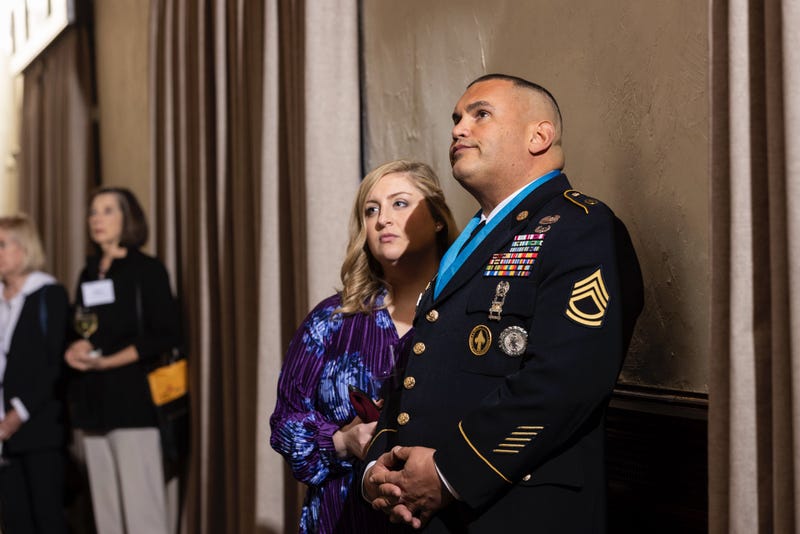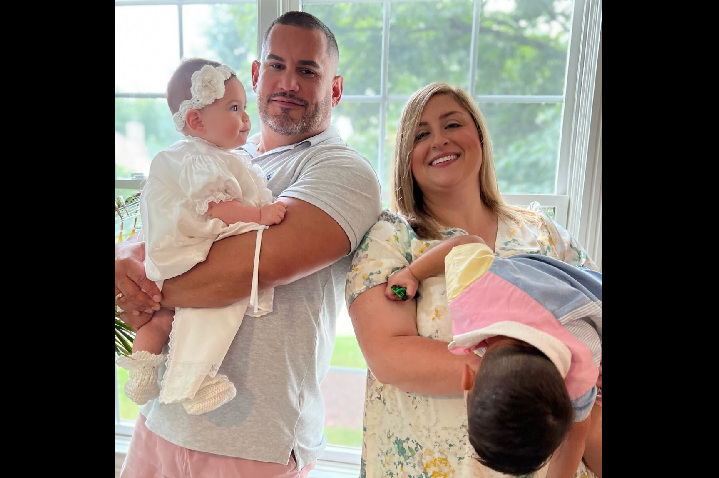Editor’s note: The content of this article includes descriptions of traumatic experiences. If you are in immediate need of help, call or text 988 (Veterans, press 1) or visit 988lifeline.org/chat. The help line is available 24/7, toll-free.
CHICAGO (WBBM NEWSRADIO) — The Road Home Program at RUSH deals specifically with veterans and their families as they cope with any combination of effects from post-traumatic stress disorder (PTSD), military sexual trauma (MST), or depression and anxiety related to military and combat experience.
“I’m present for my children; I’m present for my spouse,” Lindenhurst resident Peter Leguizamon said. “I’m an active member in my community.”
For Leguizamon, the road home from several tours in Iraq and Africa was a long one.
“My rank was sergeant, first-class,” he said. “I was the senior intelligence sergeant for the theater intelligence group of United States Africa Command.”
While overseas, Leguizamon provided the intelligence support that would eventually free Libyans from the Gaddafi regime.
“I was in western Iraq, and we were getting hit with these suicide car bombs, which is crazy enough,” he said. “But in order to make us hesitate on the gun, they started doing it with kids inside the car, so now you have to make a decision, a split-second decision. You’re only concerned about the soldiers underneath you. Your first job is to protect their life, so you do.
“Later on, that stuff comes back, so a lot of that not knowing eats at you.”
There were other experiences that Leguizamon said left him overwhelmed and conflicted, including a failed attempt to save the life of a person who had been severely injured. He later learned the individual was a bomb maker whose devices would’ve targeted Leguizamon’s team.
This 16-year Army combat veteran, husband and father — having performed actions that go against societal norms — is considered a hero by many back home, but he said the life of a hero can be very confusing.

“We’re not raised to do the actions that we have to perform in order to win the war,” he said. “There’s the traumatic shock of those brief, horrible experiences, and then there’s the long, lingering moral injury that kind of sits in your gut.”
Leguizamon said he began drinking heavily and self medicating in other ways in order to cope with himself, depression and suicidal thoughts. He said he was on edge with everyone around him.
“Can you imagine living with somebody who’s always on edge?” Leguizamon said. “And they’re screaming at you, and if you open the door wrong or make a loud sound, they’re flipping out. You think that’s normal, but it’s not. It’s affecting your family; it’s affecting your coworkers. It’s weird — you’re the last one to know.”
After seeking help from RUSH’s Road Home Program in Chicago, which offers intensive group therapy sessions for combat veterans, Leguizamon said he has come a long way and possesses the tools to overcome any negative emotions related to combat trauma.
“It’s OK to not be OK,” he said.
Leguizamon encouraged others like him to take that first step and find something that works for them.
“People need to understand: When you seek help, it’s not going to be a magical rise to the top,” he said. “It’s a slow, steady grind of doing the right thing every minute of the day, using the tools you’re learning, and slowly building back up to that point where you can start to walk on your own.”
A spokesperson for RUSH told WBBM that the program is grateful for this new round of funding from the Wounded Warrior Project (WWP), which will allow for three more years of the intensive program's operation.

The spokesperson added that WWP's ability to fund such programs shows that citizens do understand and care deeply about those protecting their freedom.
“As I understand it, most of their funding comes from average Americans sending relatively small, under-$200 checks,” they said.
Leguizamon said his experience with the Road Home Program has been a “double-positive” because he’s no longer “going down that road” and can put his energy toward positive things in his life.
Listen to our new podcast Looped In: Chicago
Listen to WBBM Newsradio now on Audacy!
Sign up and follow WBBM Newsradio
Facebook | Twitter | Instagram | TikTok
